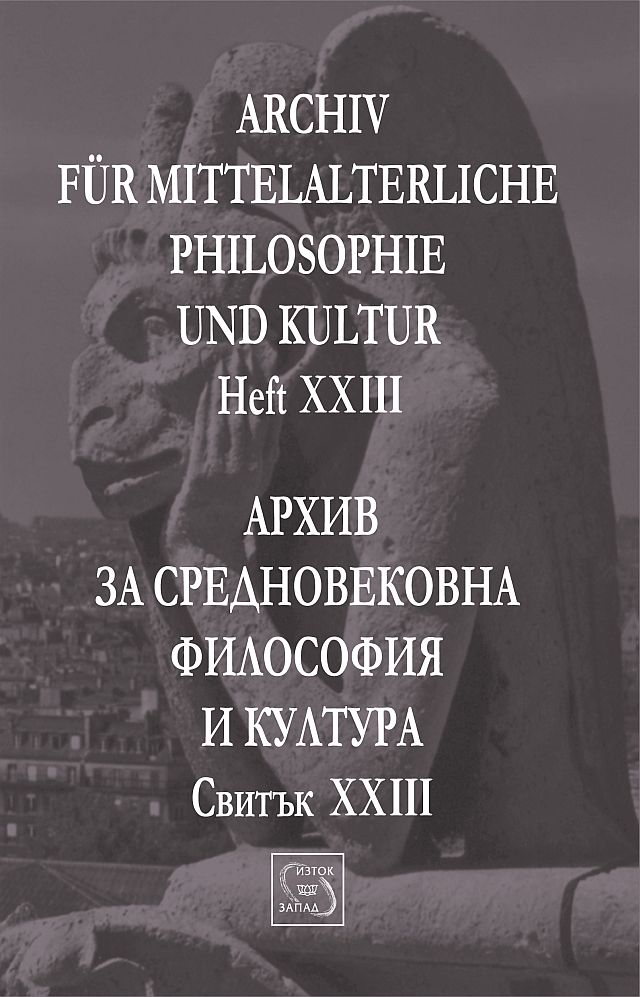Мъдростта като епистемологичен и антропологичен
концепт от Ориген до Фотий
Wisdom as an Epistemological and Anthropological Concept from Origen to Photius
Author(s): Smilen MarkovSubject(s): Christian Theology and Religion, Philosophy, Philosophy of Middle Ages
Published by: Издателство »Изток-Запад«
Keywords: metaphysics; criticism; wisdom; anthropic principle; historicism; christology
Summary/Abstract: In the theology of the Eastern Church wisdom is related to divine economy, which is why, apart from the epistemic and the ethical aspect, it has to do with the hermeneutics of divine revelation.The goal of acquiring wisdom has anthropological dimensions,since divine revelation is addressed to man and man is the image of God. Therefore, the criteria for perfection in terms of practical reasoning are not merely cognitive, they are anthropological. For Origen the ways of wisdom are transcendent to the plurality of the created world and man can achieve wisdom following the epistemic structure of unification. In the understanding of Dionysius,the recognition of the harmony of the ontological hierarchy and the volitional participation in this hierarchy is the road of wisdom. Maximus introduces the dynamism of Christology in the concept of wisdom: for him wisdom is not just following the natural hierarchy,but participating in the transformation of the latter through Christ. In this participative concept of acquiring wisdom Photius introduces the existential and epistemological uncertainty as an axiomatic starting-point, which enables man to accept wisdom as a divine gift and to take responsibility for the Christological transformation of creation.
Journal: Архив за средновековна философия и култура
- Issue Year: 2017
- Issue No: 23
- Page Range: 62-80
- Page Count: 19
- Language: Bulgarian
- Content File-PDF

